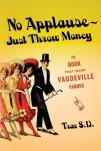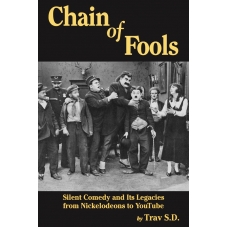Today is the birthday of Skeeter Davis (Mary Frances Penick, 1931-2004). Her unflattering nickname (short for mosquito) came from her grandfather; “Davis” comes from the fact that she started out as one half of the country duo the Davis Sisters with Betty Jack Davis. The two girls met in high school while growing up in Kentucky, and had scored a couple of songs on the country charts in the early 50s, until Betty Jack was killed in a car accident in 1953. Skeeter temporarily retired from the music industry, but returned in the late 50s and began having country hits. By the early 60s she was crossing over onto the pop charts. Her biggest hit, “The End of the World” was released in 1962, and went all the way to #2 on the pop charts in 1963.
I think this record is absolute perfection on every level, just one of those occasions when a collection of magic ingredients fall into place. The lyrics (by Sylvia Dee) blow me away every time. At the risk of ridicule, they remind me of a Shakespeare soliloquy, this painstaking litany of simple images taken from nature, each an illustration in the girl’s argument that her heartbreak is the most important tragedy in the world — because from her limited perspective, it is. Shakespeare’s writing in Romeo and Juliet and many of the comedies takes just this tack. If you’re young, you wind up feeling her heartache; if you’re older, you just feel for her, and want to tell her things really will be okay after a while. Davis’s regional accent reinforces the feeling of sweetness and innocence. “The end” becomes “Tha ind” and “cause” becomes “cowse” — makes it sound as though her world is very small indeed. (Ironically, she was 31 when the song was recorded, though you’d swear she was 15).
Produced by Chet Atkins with Floyd Cramer playing those stately piano arpeggios, the dignified, relentless simplicity of the arrangement never lets up, never tips over into bathos or kitsch. Even Atkins’ employment of that sure-fire weep trigger the peddle steel guitar is just enough, it’s just a touch and never crosses the line into “too much.” There must have been a billion tears shed during slow dances while this tune was playing.
To find out more about the variety arts past and present, consult No Applause, Just Throw Money: The Book That Made Vaudeville Famous, available at Amazon, Barnes and Noble, and wherever nutty books are sold.

And don’t miss my new book Chain of Fools: Silent Comedy and Its Legacies from Nickelodeons to Youtube, just released by Bear Manor Media, also available from amazon.com etc etc etc



[…] When researching, we often discover other things worth sharing. This blog (TRAVALANCHE) had a great write up from 2010 on Skeeter Davis and “The End of the World”. There are some […]
LikeLike